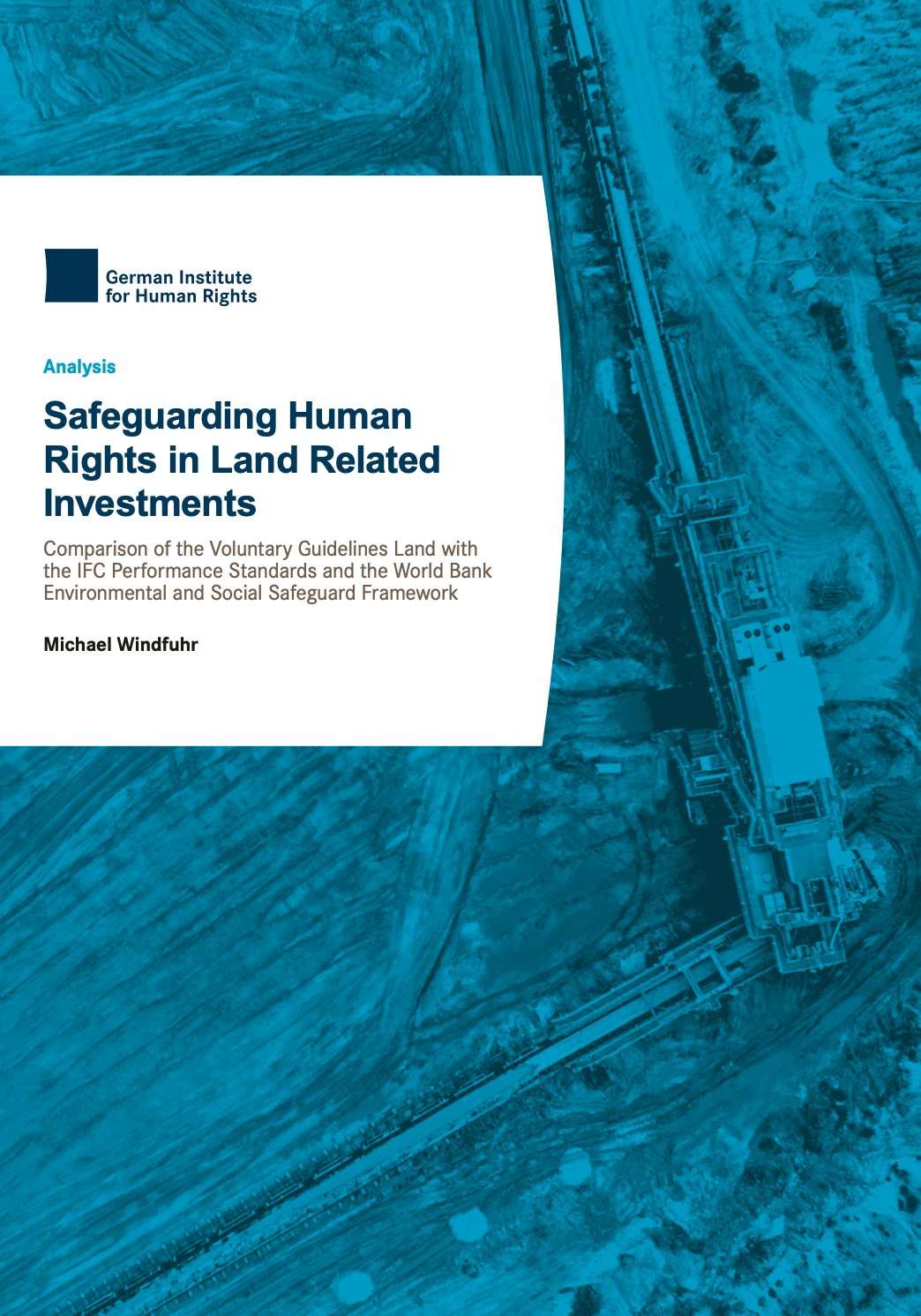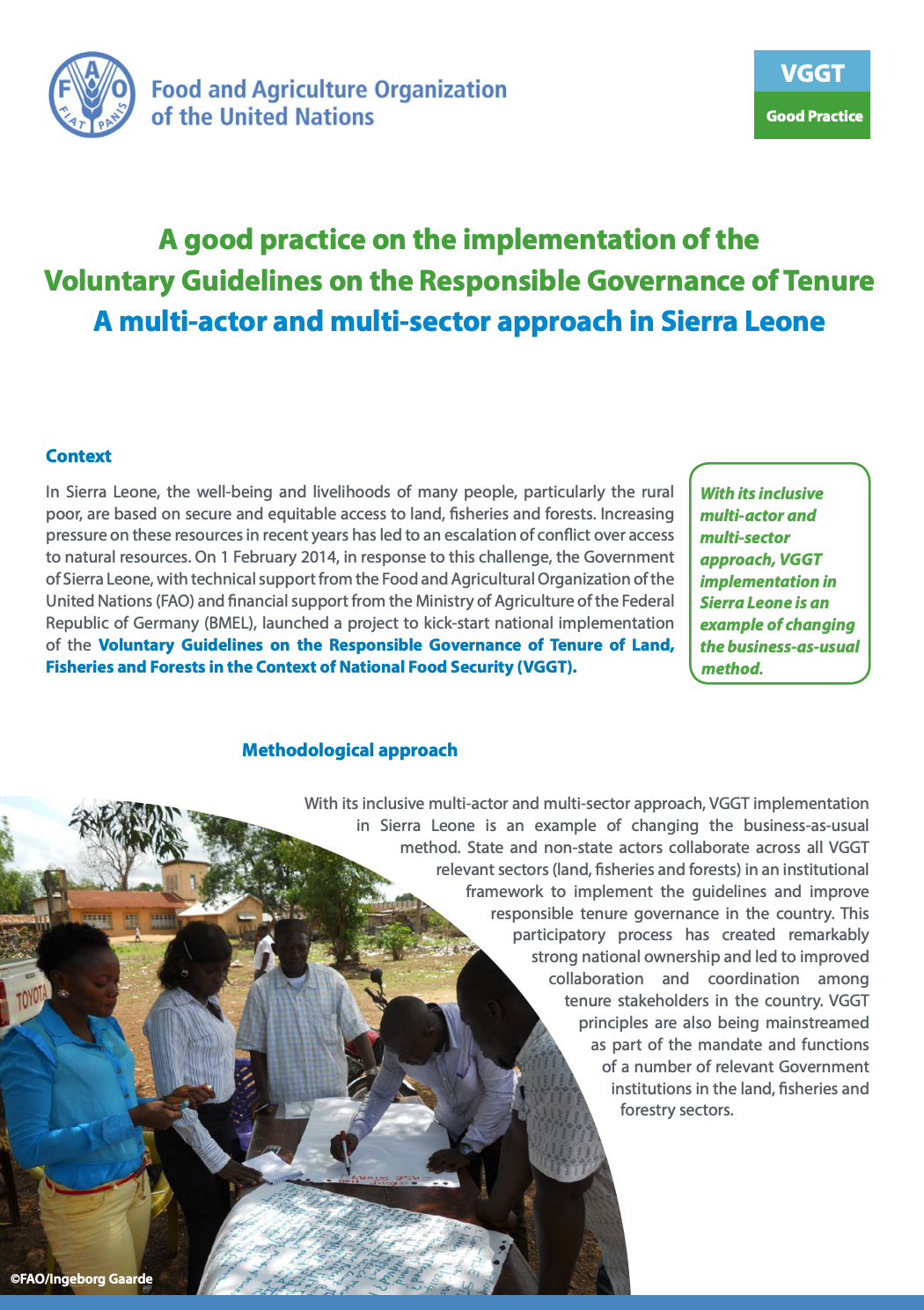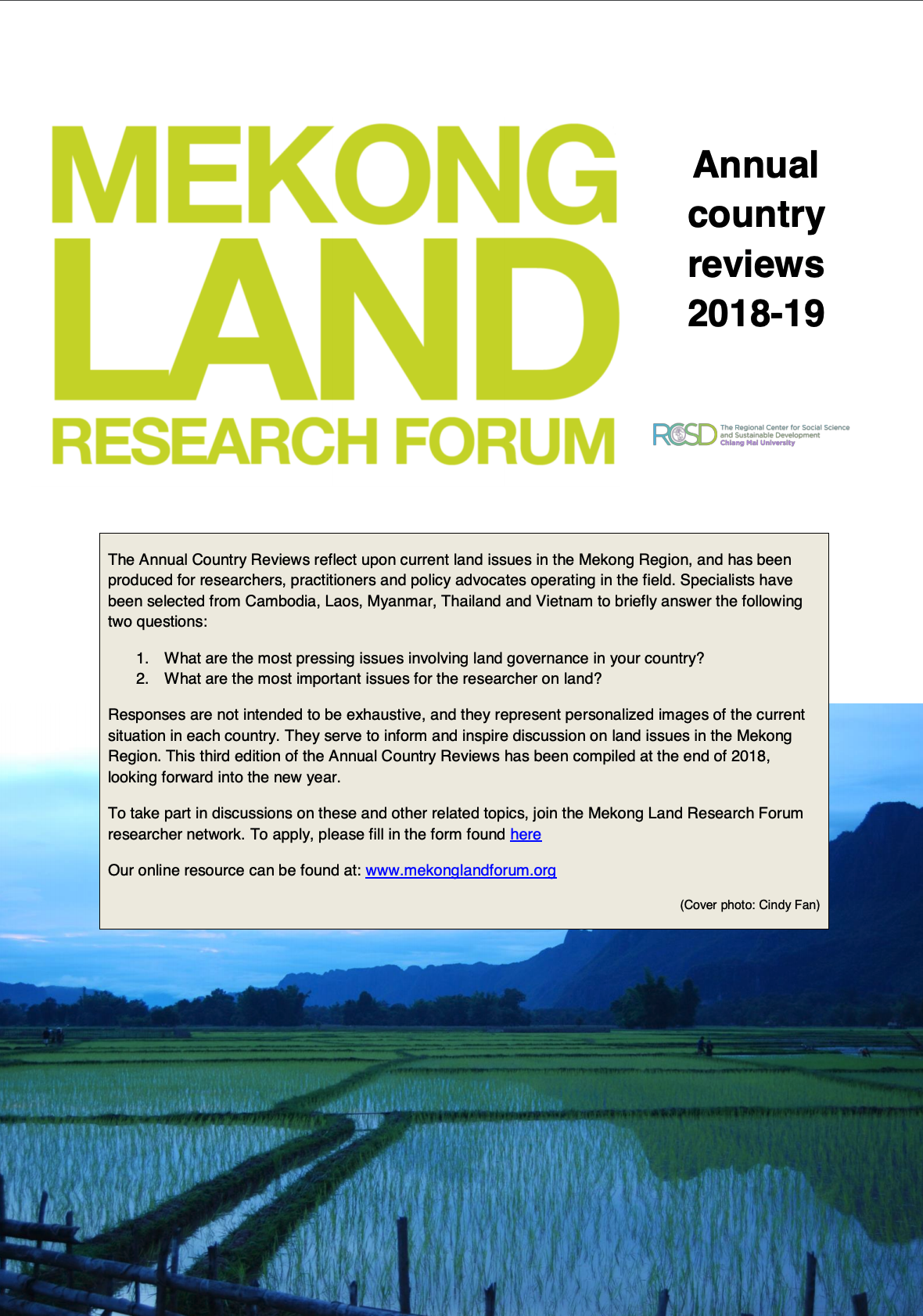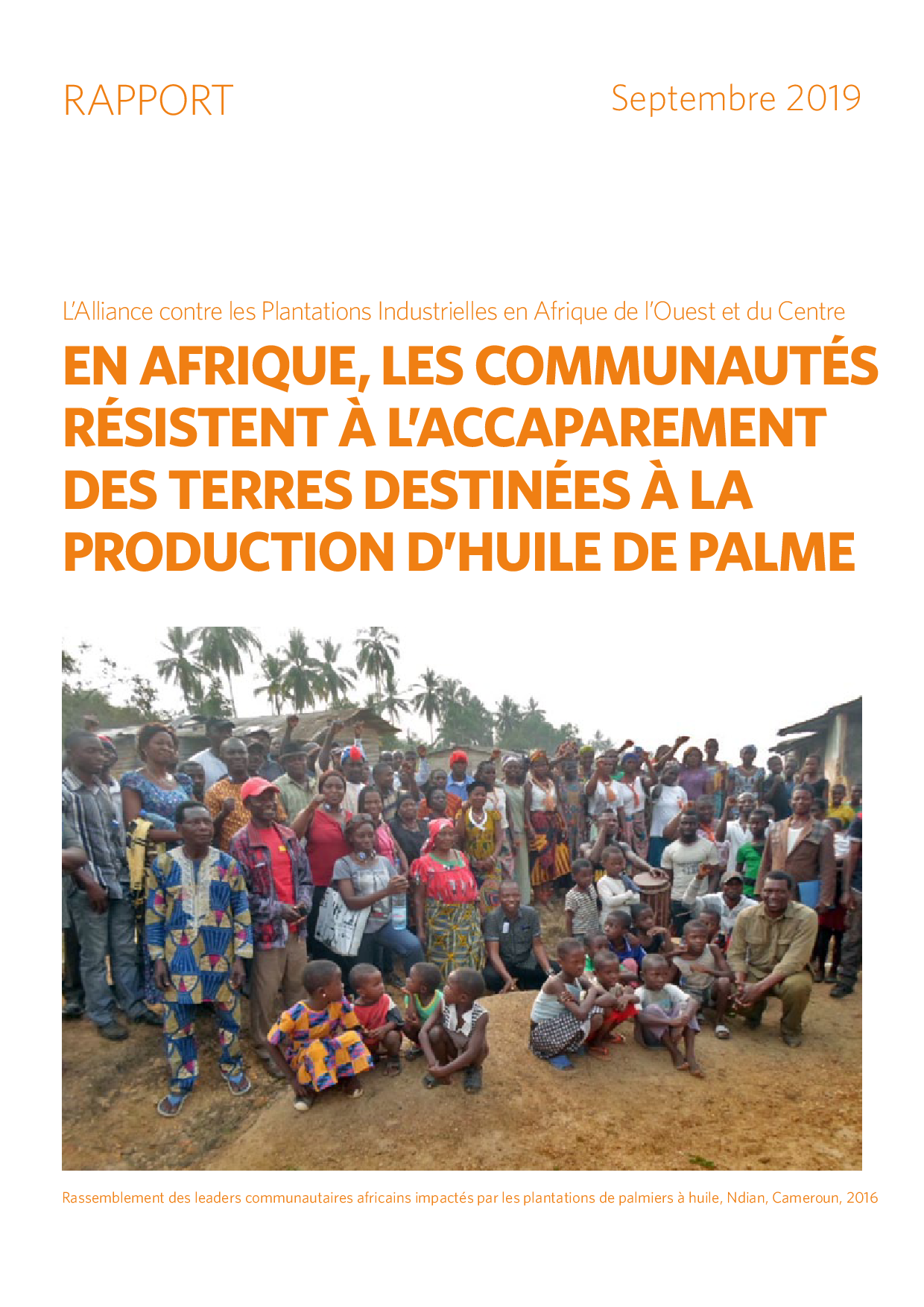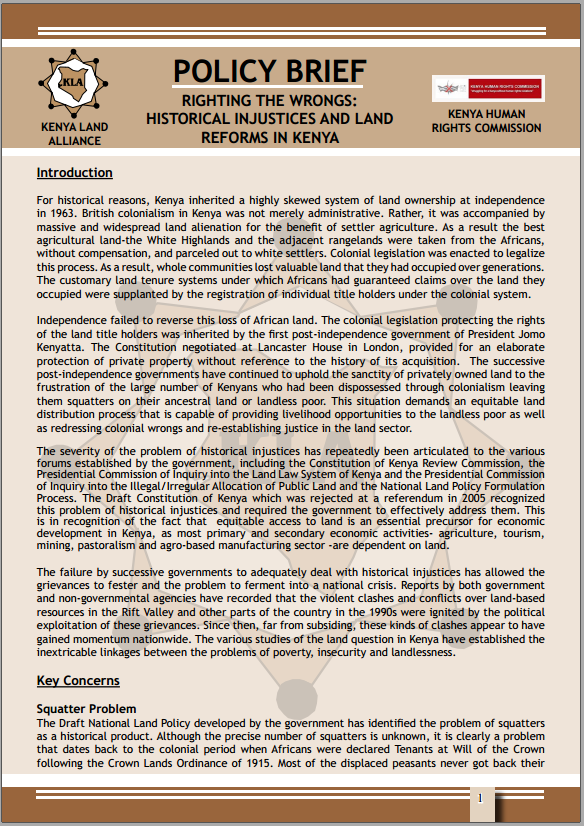Safeguarding Human Rights in Land Related Investments
The Voluntary Guidelines on the Responsible Governance of tenure of Land, Fisheries and Forests in the Context of national Food Security (VGGt) represent a new international legal instrument, which was adopted unanimously in 2012 by the United nations Committee on World Food Security (CFS). the Guidelines are a soft law instrument that does not create new, legally binding obligations for states or responsibilities for private actors, but that applies existing governance standards, particularly for human rights, to the management of land.

